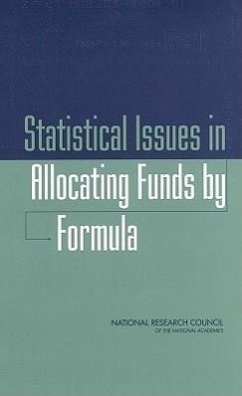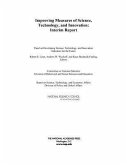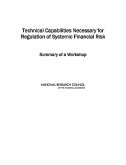In 2000, the federal government distributed over $260 billion of funding to state and local governments via 180 formula programs. These programs promote a wide spectrum of economic and social objectives, such as improving educational outcomes and increasing accessibility to medical care, and many are designed to compensate for differences in fiscal capacity that affect governments' abilities to address identified needs. Large amounts of state revenues are also distributed through formula allocation programs to counties, cities, and other jurisdictions. Statistical Issues in Allocating Funds by Formula identifies key issues concerning the design and use of these formulas and advances recommendations for improving the process. In addition to the more narrow issues relating to formula design and input data, the book discusses broader issues created by the interaction of the political process and the use of formulas to allocate funds. Statistical Issues in Allocating Funds by Formula is only up-to-date guide for policymakers who design fund allocation programs. Congress members who are crafting legislation for these programs and federal employees who are in charge of distributing the funds will find this book indispensable.
Bitte wählen Sie Ihr Anliegen aus.
Rechnungen
Retourenschein anfordern
Bestellstatus
Storno





